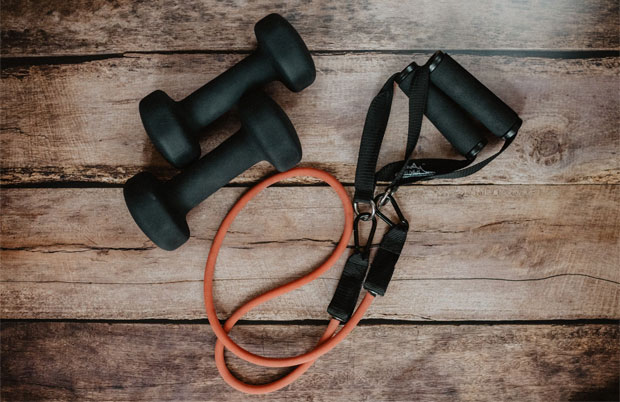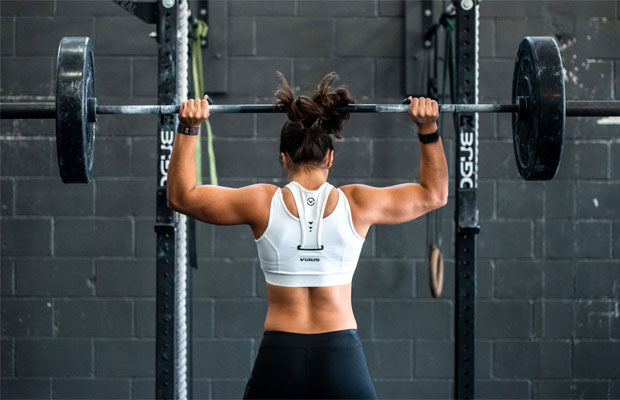The Role of Supplements in Workout Recovery

The Role of Supplements in Workout Recovery
Engaging in regular physical activity is widely celebrated for its myriad health benefits, from boosting cardiovascular fitness to improving mental well-being. However, the aftermath of a robust workout session often brings muscle soreness and fatigue, making recovery an essential part of any exercise routine.
You can stretch and massage those sore muscles, but sometimes, you need an extra boost. This is where supplements come into play. Let’s learn more.
Understanding Workout Recovery
Effective workout recovery optimises your fitness gains and helps prevent injury. It involves more than just resting. It’s an intricate process with nutritional facets playing a crucial role.
Phases of Recovery
- Immediate Phase: Right after your workout, your body starts repairing micro-tears in the muscle fibres. In this phase, your muscles may begin to store carbohydrates as glycogen and rehydrate.
- Short-term Phase: Within hours to days post-exercise, inflammation reduces, and tissue repair accelerates. It’s a time when proper nutrition can enhance muscle protein synthesis.
- Long-term Phase: Extending over days to weeks, this is where the true benefits of a workout are realised. Your muscles grow stronger, and endurance improves, provided they’ve received the right nutrients and rest.
Importance of Nutrition in Recovery
- Macronutrients: Each plays a role post-workout.
- Proteins: They’re the building blocks for repair.
- Carbohydrates: They replenish spent energy stores.
- Fats: A small amount can help with cellular processes.
- Micronutrients: Certain vitamins and minerals, such as Vitamin C, D, and Magnesium, aid in reducing oxidative stress and repairing tissue.
- Hydration: Dehydration can hinder recovery, so replenishing fluids and electrolytes is vital.
Understanding the fundamentals of workout recovery can profoundly impact the effectiveness of your fitness routine, making sure every drop of sweat counts towards achieving your goals.

Types of Supplements for Recovery
Selecting the right supplements can significantly impact your workout recovery. Each type of supplement serves a specific purpose in helping your muscles recover and prepare for the next workout session.
- Protein Supplements
Protein is fundamental for muscle repair and growth. After exercising, your muscles need protein to heal the microtears that occur during intense workouts. Whey protein is a popular choice due to its rapid absorption, whereas casein protein offers a slower release, making it ideal for night-time recovery.
- Amino Acids
Amino acids, particularly branched-chain amino acids (BCAAs), are the building blocks of protein. They can enhance recovery by reducing muscle soreness and damage. Leucine, isoleucine, and valine are critical BCAAs that support muscle synthesis and repair.
- Creatine
Creatine is renowned for its ability to increase muscle energy reserves and support recovery, leading to better performance in subsequent workouts. Creatine Monohydrate supplements, such as Beava’s creatine monohydrate gummies, can be particularly convenient, providing the benefits without the hassle of powders.
- Electrolytes
Replenishing electrolytes after exercise is critical; they regulate nerve and muscle function and hydrate the body. Key electrolytes include sodium, potassium, calcium, and magnesium. Sports drinks, electrolyte tablets, or even a simple banana can help restore these vital minerals.
- Antioxidants
Intense exercise can increase oxidative stress, leading to muscle fatigue and prolonged recovery time. Antioxidants like vitamin C, E, and beta-carotene can help neutralise free radicals. Consider foods rich in antioxidants or a targeted supplement to aid in recovery.

How to Choose the Right Supplements
Choosing the right supplements for workout recovery hinges on understanding your body’s needs, ensuring product safety, and aligning with your fitness objectives.
Assessing Dietary Needs
Before you add supplements to your routine, it’s crucial to evaluate your current diet. Consuming a balanced mix of macronutrients (protein, carbohydrates, and fats) and micronutrients (vitamins and minerals) through your daily meals is vital. If you find gaps, supplements can help bridge them. Use the following checklist to help highlight dietary deficiencies:
- Protein: Are you getting enough for muscle repair?
- Vitamins and Minerals: Is your intake consistent with your body’s demands?
- Caloric Needs: Are you consuming enough calories to fuel your recovery?
Quality and Safety
Quality and safety should never be compromised. Always opt for products that have been third-party tested and are certified for quality assurance. Look for certifications from organisations like NSF or the USP. Pay close attention to the ingredient list for any fillers or artificial additives that you might want to avoid.
- Certifications: NSF, USP, Informed-Choice
- Label Transparency: Clear, comprehensive ingredient listing
- Brand Reputation: Trustworthy brands with positive user reviews
Personal Goals and Preferences
Your personal fitness goals and preferences play a significant role in choosing the right supplements. Whether you aim to increase muscle mass, enhance endurance, or reduce recovery time, there’s a supplement tailored to those needs. If plant-based living aligns with your ethos, seek out vegan or vegetarian options. And if convenience is key for you, explore ready-to-drink supplements versus powders.

Conclusion
The integration of supplements into your workout recovery routine can be a game-changer, offering the necessary boost to enhance muscle repair, replenish energy stores, and prepare your body for its next challenge. From protein powders and amino acids to creatine and electrolytes, selecting the right supplements is crucial in supporting your body’s recovery phases and achieving your fitness goals.
Prioritising quality, understanding your dietary needs, and aligning choices with your personal goals and preferences ensure that you not only recover effectively but also maximise the benefits of every workout. Remember, supplements should complement a well-rounded diet and healthy lifestyle, acting as allies in your journey towards optimal physical performance and well-being.
Guest Article.





